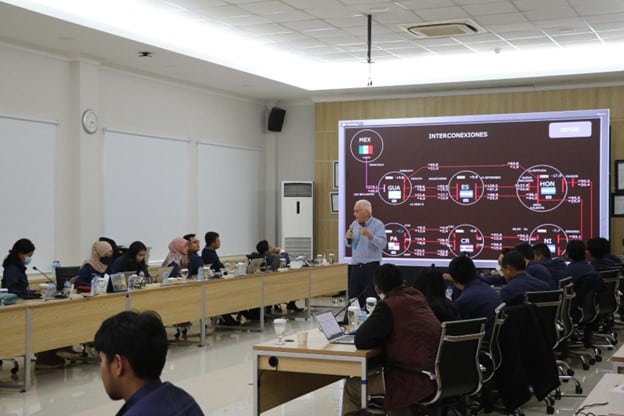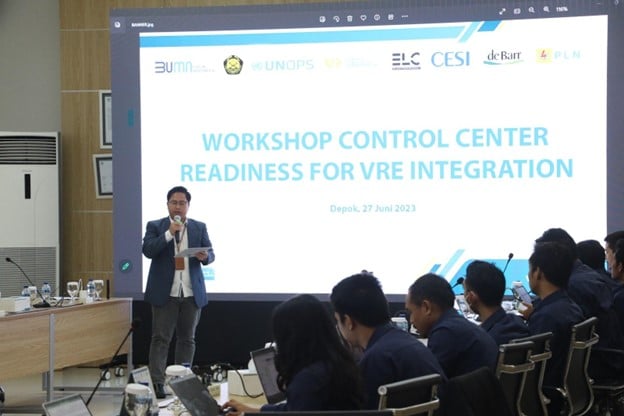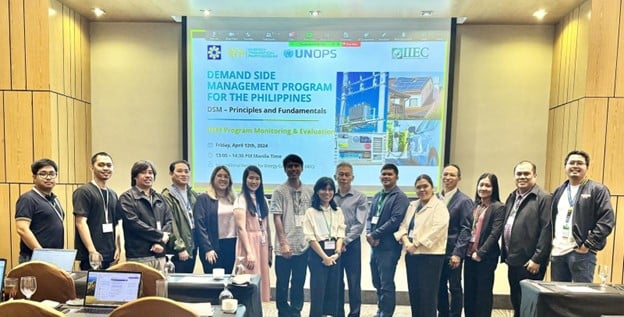Partnering together to find solutions
ETP was founded in 2020 with the understanding that making strides towards stated climate goals would require countries to find sophisticated solutions that account for the intertwined nature of the energy transition, sustainability, economic prosperity, and social well-being. ETP bolsters partner countries’ efforts to accelerate the energy transition primarily by providing technical advice to policymakers and industry leaders — building local capacity to deal with the challenges of the climate crisis head-on.
“For the energy transition to work, everyone needs to be on board — not just national governments. We work with state and local governments as well as utilities, the finance sector, business owners, and the general population to give them the knowledge, tools, and abilities to enact the changes needed to develop and implement renewable energy and energy efficiency measures. This enables countries to be even more ambitious in their climate goals.”
John Robert Cotton, Senior Program Manager, ETP
ETP builds on long-standing, in-country relationships and deep expertise to help countries achieve their climate goals in ways that are inclusive, sustainable, and economically viable.
Paving the way to a clean energy transition in Indonesia
Under the Indonesia Presidency, the G20 announced a multi-part framework for accelerating a just, inclusive transition to clean energy in member countries. This framework, known as the Bali Energy Transitions Roadmap, is centered on securing energy accessibility, scaling up smart and clean energy technologies, and advancing clean energy financing.
In the lead up to the G20 Summit, the government of Indonesia and the state-owned power company, Perusahaan Listrik Negara (PLN), initiated a plan to harness Indonesia’s existing resources — especially its vast solar and geothermal potential — to provide reliable and cost-effective energy to Indonesia’s growing population while simultaneously cutting greenhouse gas emissions. However, PLN faces important challenges. For example, the Supervisory Control and Data Acquisition (SCADA) system and Energy Management Systems (EMS) of its main power control center is limited in its capacity to handle large amounts of variable renewable energy (energy sources that naturally fluctuate, such as solar or wind energy). As a result, this control center, which is known as the Jawa, Madura, and Bali (Jamali) Control Center and supplies electricity to 160 million people across seven provinces, is not capable of meeting Indonesia’s energy and climate ambitions.
At the request of PLN, ETP provided plans for revitalized SCADA and EMS, detailed architectural and infrastructural plans for soon-to-be-built Main Control Center and Disaster Recovery Center buildings, and tender documents to help solicit bids for the projects. ETP staff also prepared a series of workshops for 72 PLN dispatchers and staff, to help train them on the new systems and on renewable energy integration.

Participants in PLN workshop, 2023
“This project will open up greater opportunities for investment in the clean energy sector, including new business potential arising from energy transition activities. It also shows how programs like ours work in addressing the technical problems of the energy transition, especially the reliability of the electricity system in Indonesia. In the end, when these projects are carried out systematically and comprehensively, they will be able to help Indonesia implement its commitment to the Paris Agreement and achieve the Net Zero Emission target.”
Aang Darmawan, Country Lead for Policy and Planning (Indonesia), ETP
The planned refurbishment of the Jamali Control Center is creating opportunities for additional renewable energy projects: for example, the government of Indonesia requested ETP’s assistance in conducting solar irradiance mapping — the process of measuring and visualizing the amount of sunlight reaching a specific area over a set period — and wind mapping. ETP recognized that while mapping represented an essential first step in determining the future location of power plants, a more comprehensive approach was needed. They offered a counter-proposal.
The government of Indonesia accepted the proposal, and in March of 2023, ETP and Indonesia’s Ministry of Energy and Mineral Resources announced an initial agreement that would provide Indonesia with the technical assistance to generate 1 GW of solar projects in different locations throughout Indonesia. Unfolding in stages over the next several years, this project expands on the initial request for solar irradiance and wind data mapping to provide a comprehensive grid assessment, regulatory framework assessment and an investment plan for solar power projects. This project will work to unlock finance in this area and lead to an expedited pipeline of bankable solar projects across Indonesia. Ultimately, PLN plans to install the equivalent of 4.68 gigawatts (GW) of solar panels installed between 2021 and 2030 as part of its goal to reach net zero carbon emissions by 2060.

Participants in ETP’s VRE Integration Workshop, 2023
By working together with PLN and other Indonesia partners, ETP will prove that the deployment of renewable energy projects is not just viable, but beneficial for Indonesia — and ultimately for additional countries in the region.
Cultivating a demand-responsive energy landscape in the Philippines
The Philippines passed the Energy Efficiency and Conservation (EE&C) Act in 2019, which establishes a framework for introducing and institutionalizing energy efficiency and conservation as a national way of life. A key provision of the EE&C Act is Demand Side Management (DSM) for the electric power industry, which encapsulates a range of strategies designed to support electric utilities and influence consumers to use less energy during periods of high demand. In empowering consumers to make smart choices regarding their energy usage, the Philippines DSM will have several benefits.
“With DSM in place, the Philippines will have a robust grid system that balances the supply of clean and variable renewable technologies, such as wind and solar power. It increases the efficiency of the distribution grid, enhances system flexibility and reliability, and delays the need for constructing additional baseload power plants. The combined impact of DSM allows for an energy transition that will equitably displace fossil-fuel based power generation and reduce energy intensity, thereby contributing to significant greenhouse gas emissions reduction.”
Yoshiko De Villa, Programme Management Officer (Philippines), ETP
Over the course of 18 months, the Philippines Department of Energy – Energy Utilization Management Bureau together with a multi-stakeholder DSM Technical Working Group will develop the Philippines’ DSM Program, through ETP’s support. The Program will identify appropriate DSM strategies, define the roles and responsibilities of participating agencies, and establish a monitoring and evaluation framework. The DSM Program will form the basis for a series of trainings for policymakers and energy planners across the Philippines, who will ultimately be responsible for implementing the national DSM Program.
In partnering with government agencies, electric utility companies, and various stakeholders across the region, ETP demonstrates its commitment to long-term and incremental — yet cumulatively transformative — change. ETP is known for its simultaneous “top-down” policy and “bottom-up” approaches to building knowledge and acceptance of renewable energy and energy efficiency measures across all sectors of society.
Looking to the future
ETP’s approach is systems-wide and future-oriented. In proving the abundance of Indonesia’s renewable power resources and the feasibility of its solar projects, ETP, PLN, government entities, and partners have created opportunities for networks of bankable projects that will facilitate economic growth, energy security, and improved quality of life for millions of people in Indonesia. In addition, ETP’s forward-looking partnership with the government of the Philippines to develop DSM strategies will empower consumers and support electric utilities to make transformative choices for themselves and for the planet.
As requests for ETP’s recommendations and technical assistance increase, so too does its program: it has hired new staff and expanded from 14 projects at the start of 2023 to 34 projects at the end of the year — all while continuing to provide the sort of comprehensive support its current partners have come to appreciate.
“The countries of Southeast Asia are sophisticated in their approach to the clean energy transition. Sequoia is proud to support bold strategies and efforts in Indonesia and the Philippines that will have both near-term impact and the highest probability of long-term success. With its long-standing reputation, technical expertise, and deep in-country connections, ETP has emerged as an ideal partner to help countries in the region realize ambitious energy- and climate-related goals.”
